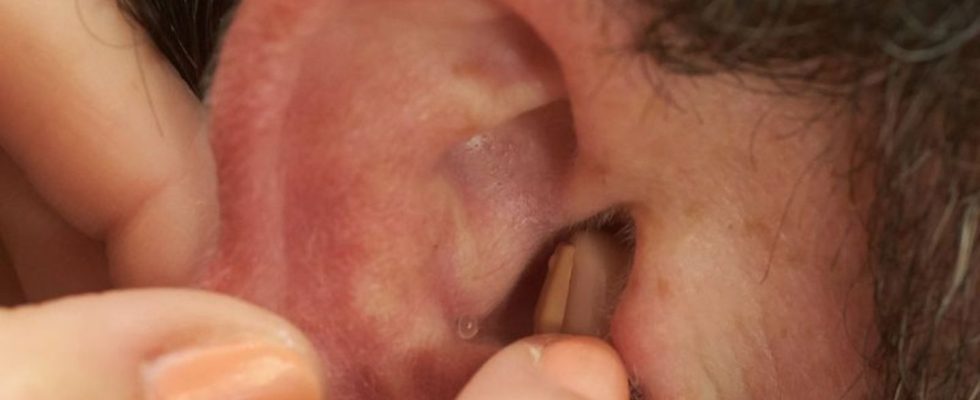study
Hearing aids can save older people from dementia
According to the German Society for Neurology, around 50 million people worldwide have dementia, 1.6 million of them in Germany alone. photo
© Thomas Frey/dpa
A hearing aid not only seems to help against hearing loss, but also to reduce the risk of dementia. A new study has found that the risk of developing dementia is significantly higher for those who are hard of hearing without a hearing aid.
Hearing aids can prevent dementia in many older people. This has been drastically underpinned by an international team of researchers with a study presented in the journal “The Lancet Public Health”. Accordingly, people with hearing loss without a hearing aid had a 42 percent increased risk of developing dementia. On the other hand, if the hearing impaired wore a hearing aid, the risk was similar to that of people with normal hearing, as reported by the team led by Dongshan Zhu from Shandong University in Jinan, China.
It analyzed data from 437,704 people aged 40 to 69 who reported on their hearing ability, all of whom did not initially have dementia. The mean time until the check-up was around twelve years on average.
It has long been known that age-related hearing loss significantly increases the risk of dementia. “When the sensory organs weaken, the risk of dementia also increases,” agrees Peter Berlit, neurologist and Secretary General of the German Neurological Society (DGN). According to the DGN, around 50 million people worldwide have dementia, 1.6 million of them in Germany alone.
Hearing aids for dementia prevention
So far, it has not been clearly proven that correcting hearing problems with hearing aids can make a significant contribution to preventing dementia. “This study actually shows that very nicely,” said Berlit. It is therefore particularly advisable to counteract this as early as possible.
“The underlying associations between hearing aid use and a lower risk of dementia are unclear,” said co-author Fan Jiang, also from Shandong University, according to a statement by the journal. Further research is required.
It is interesting that glasses are generally accepted and used regularly in old age, said Berlit. “So far, that hasn’t been the case enough with hearing aids.” Hearing impairments are noticed more often by people in the immediate vicinity than by those affected themselves. Older people, on the other hand, quickly notice poorer reading.
What signs can family members look out for?
Relatively typical of age-related hearing loss is “that it becomes difficult above all when there is a certain background noise, then those affected have difficulty following a conversation that is ongoing or understanding sentences addressed to them,” explained Berlit.
WHO recommended
Preventing dementia: You should know these 12 things
For people in the environment, however, there are signs that can be observed: “A typical situation would be on a Sunday at lunchtime, when everyone comes together and grandma and grandpa are there too. You talk and then realize that grandfather is no longer there notices what is being discussed at the table,” said Berlit. Then you should recommend him to have his hearing checked. “He will then say: “I can hear everything if I listen carefully.” But when several people are speaking, he can no longer hear what was spoken to him.” This is a typical, early sign that something is wrong.

